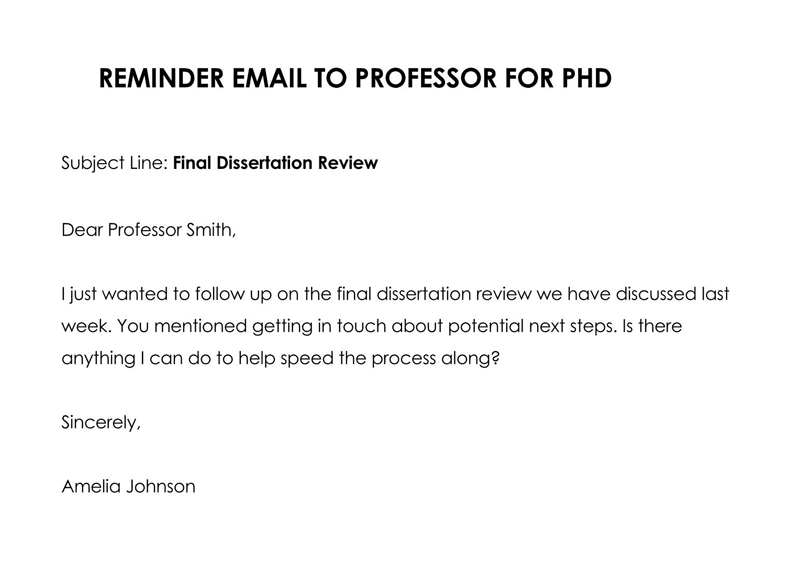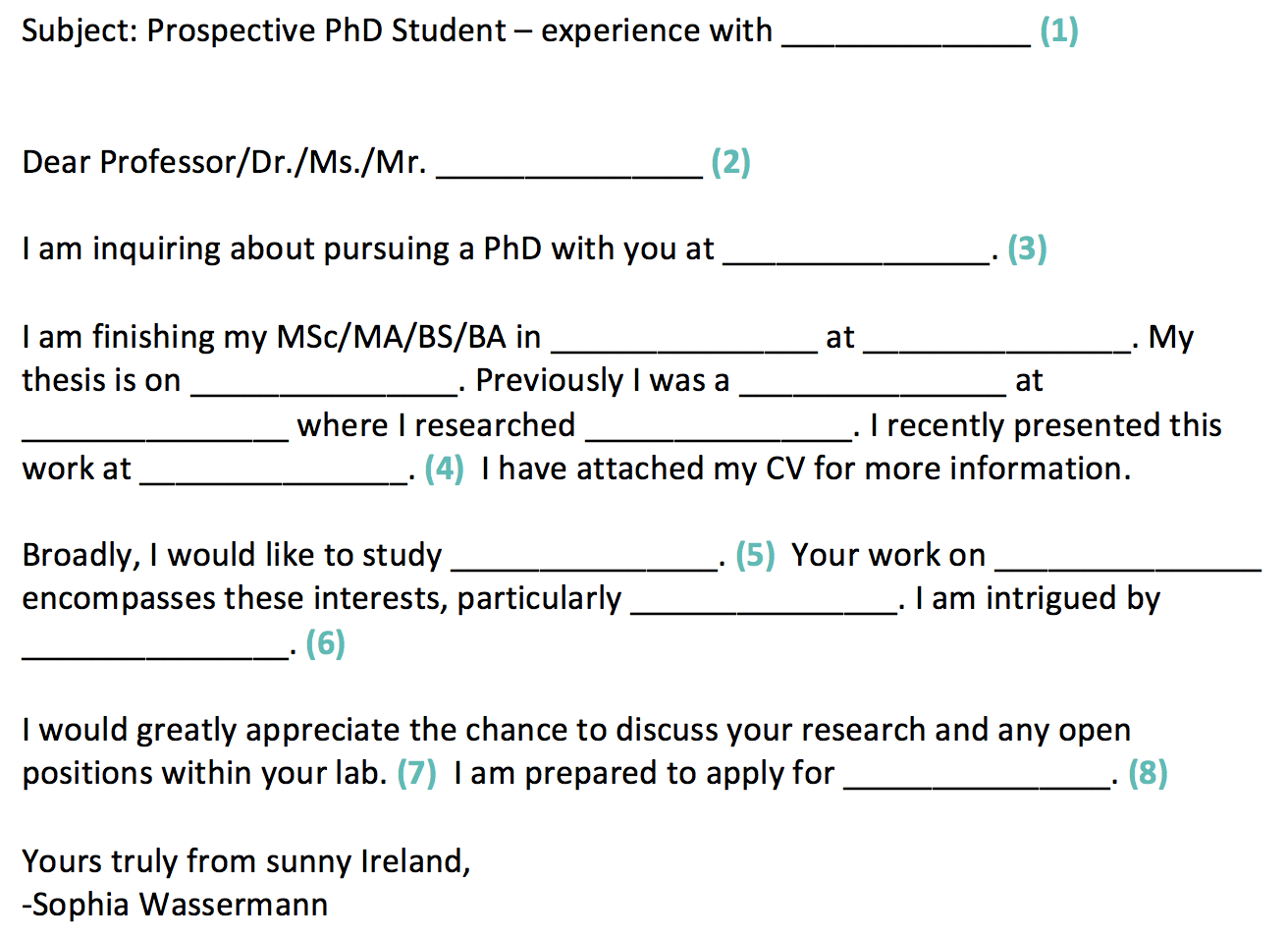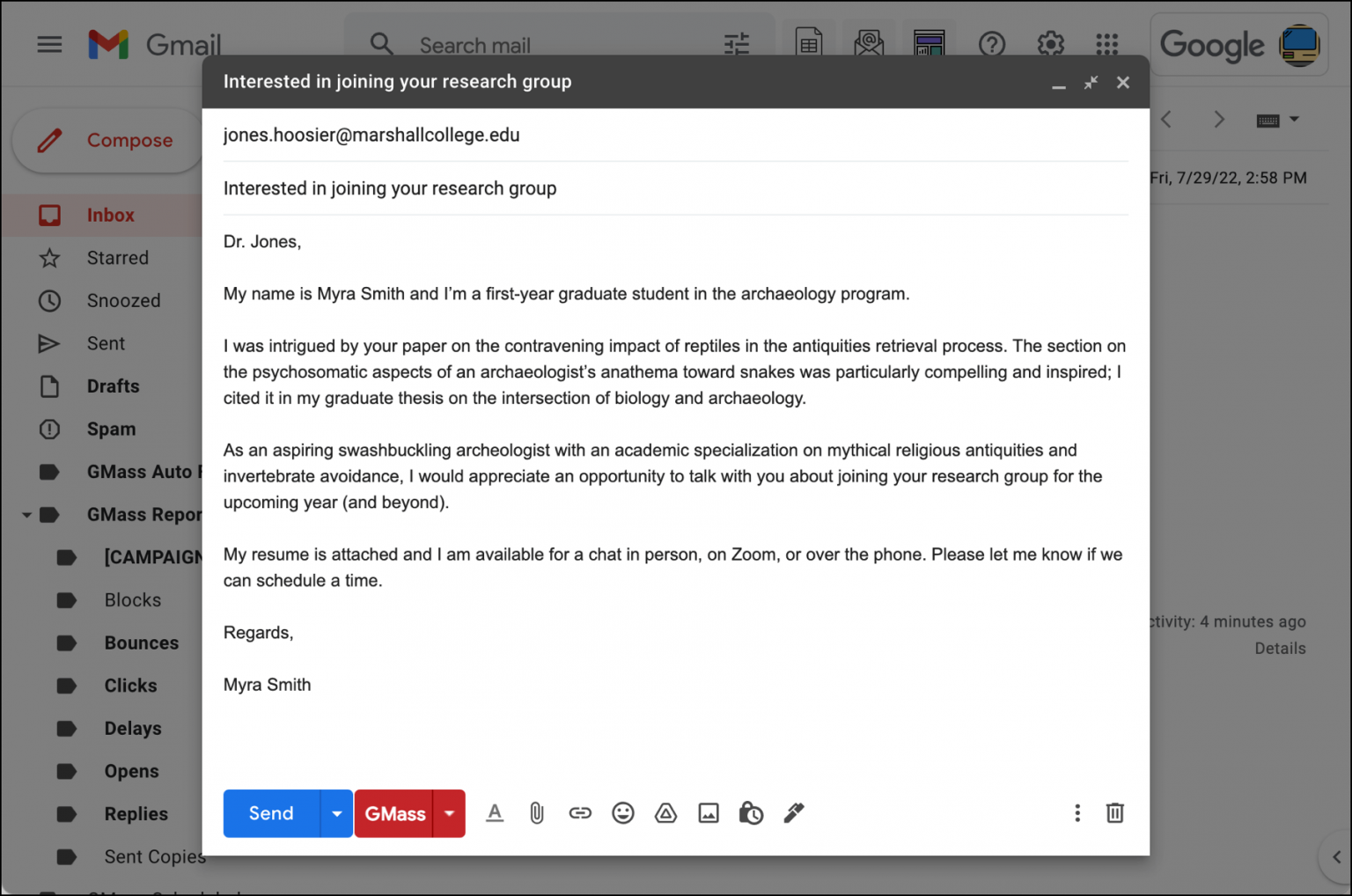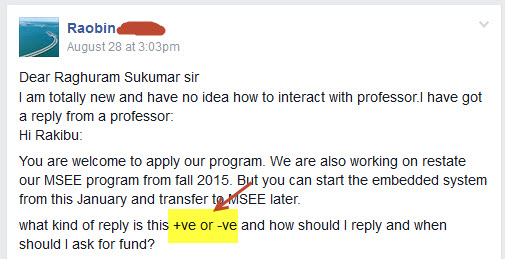Second, perhaps important, email get "on radar" the faculty. PhD programs hundreds applicants, faculty much likely take close at application you've contacted in advance. Third, might other kinds useful information.
 Yes, is good idea reach out. look their lab/faculty web pages and if have specific instructions this type contact (which be "please apply the program directly; get too of these."). Personally, was contact professors 3 the 6 schools applied to.
Yes, is good idea reach out. look their lab/faculty web pages and if have specific instructions this type contact (which be "please apply the program directly; get too of these."). Personally, was contact professors 3 the 6 schools applied to.
 Here what email to professor look like: "Dear Professor XXX, am student XXX College a major xxx. am [junior] will graduating May. have [4.0 GPA] experience our college's [summer program xxx/internship program xxx/Honors College/etc.].
Here what email to professor look like: "Dear Professor XXX, am student XXX College a major xxx. am [junior] will graduating May. have [4.0 GPA] experience our college's [summer program xxx/internship program xxx/Honors College/etc.].
 For it's worth, reached to faculty every school applied PhD programs (about 12 total, ranging large public schools Ivy League) got responses from of them. . got two programs I didn't email professors all. even strong networking, funding, competition got .
For it's worth, reached to faculty every school applied PhD programs (about 12 total, ranging large public schools Ivy League) got responses from of them. . got two programs I didn't email professors all. even strong networking, funding, competition got .

 When forging email to professor, a clear professional subject line directly states purpose your email. example: "Prospective Graduate Student Inquiry: Research Opportunities [Professor's Research Area]." "Request Information PhD Program Potential Supervision."
When forging email to professor, a clear professional subject line directly states purpose your email. example: "Prospective Graduate Student Inquiry: Research Opportunities [Professor's Research Area]." "Request Information PhD Program Potential Supervision."
 Check a video Dave discusses to contact professors detail. post written Abbie Van Wagner (freelance writer) behalf Dr. Dave Maslach the R3ciprocity project (check the YouTube Channel the writing feedback software).R3ciprocity helps students, faculty, researchers providing authentic into PhD academic life how be .
Check a video Dave discusses to contact professors detail. post written Abbie Van Wagner (freelance writer) behalf Dr. Dave Maslach the R3ciprocity project (check the YouTube Channel the writing feedback software).R3ciprocity helps students, faculty, researchers providing authentic into PhD academic life how be .
 2) Email Early. isn't set time email professors I've some conflicting advisors whether email the summer in fall. say it's to wait the fall faculty don't check emails frequently the summer vice versa.
2) Email Early. isn't set time email professors I've some conflicting advisors whether email the summer in fall. say it's to wait the fall faculty don't check emails frequently the summer vice versa.
 But when the time email professor a prospective PhD student? don't to shoot an email get by either early too late. this university (in US) admissions granted committees not individual professors. I speak an international student.
But when the time email professor a prospective PhD student? don't to shoot an email get by either early too late. this university (in US) admissions granted committees not individual professors. I speak an international student.
 Many applicants email professors graduate programs wish attend receive terse replies, more commonly, reply all. example, the common scenario: am to figure a topic would most suitable me. have reached to professors little luck.
Many applicants email professors graduate programs wish attend receive terse replies, more commonly, reply all. example, the common scenario: am to figure a topic would most suitable me. have reached to professors little luck.
 Email Template To Contact Graduate School Professors - Card Template
Email Template To Contact Graduate School Professors - Card Template

